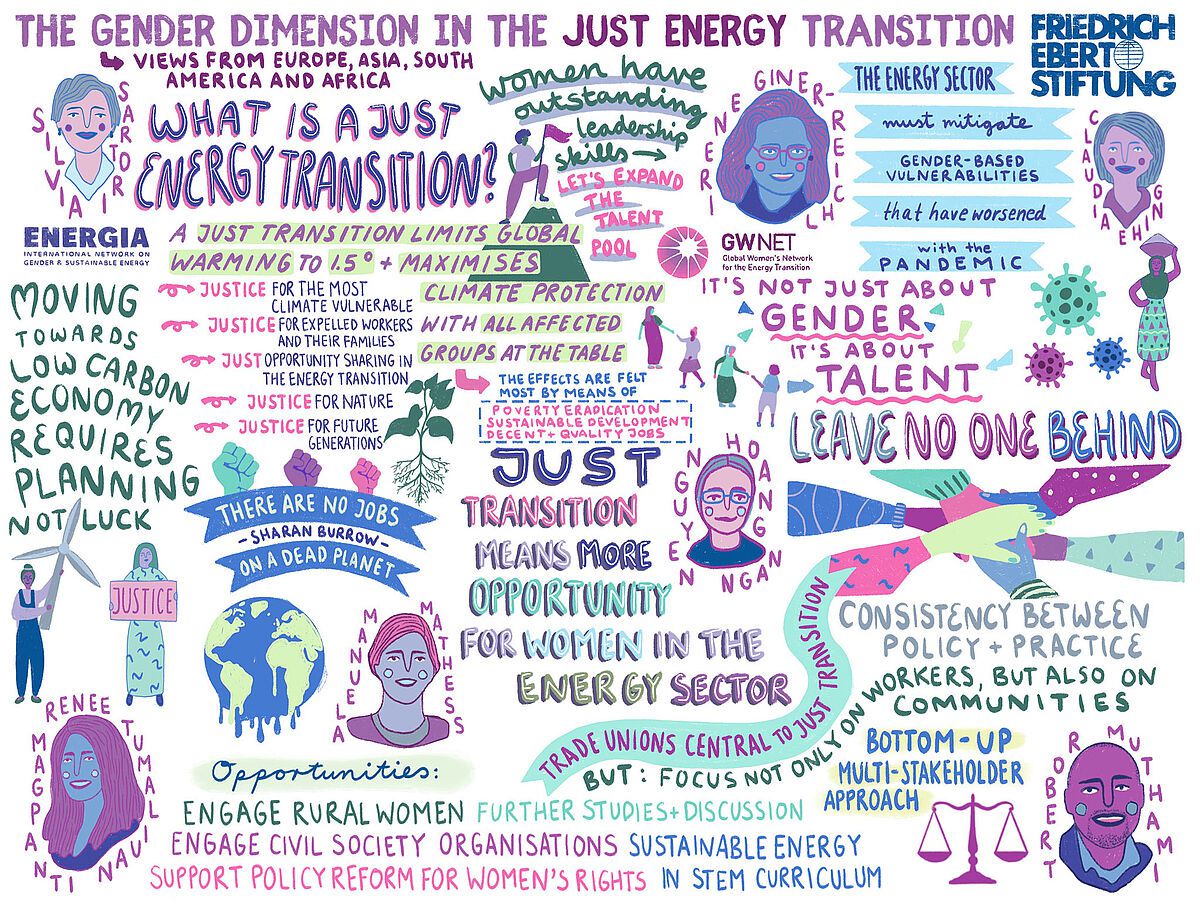For the shift from fossil fuels towards renewable energies to be genuinely sustainable on both the environmental and social levels, it needs to be just, to leave no one behind during the process.
Climate change impacts men and women differently. As the main caretakers of families and households, and providers of food security in many developing countries, girls and women are bearing the heaviest burden of the effects of climate change. They are often employed in more climate-sensitive sectors, especially subsistence agriculture. And the resources they are often tasked with procuring, such as food, water and energy, are becoming scarcer.
In addition, climate change aggravates existing inequalities in decision-making and access to resources, particularly energy. While access to energy is widening, it is not yet reaching everyone. Girls and women remain the most affected by energy poverty, which causes them to spend growing amounts of time in procuring energy sources, thus disinvesting that time from education and paid employment opportunities. Additionally, limited access to clean and safe energy makes them and children the most exposed to life-threatening health hazards, most notably in the case of biomass cookstoves. […]
This article was originally published on the Friedrich-Ebert-Stiftung (FES) website and can be accessed here.
*Between August and October 2020, the FES Regional Climate & Energy Project in Asia coordinated a series of web-seminars on the nexus between gender and energy for FES country offices in and their partners in the region. The series addressed multiple dimensions, in particular the relationship between gender and climate change, the relevance of gender in sustainable urbanization, the gendered aspects of energy and the gender component of a just energy transition. Keynote speakers included members of ENERGIA International Network on Gender and Sustainable Energy and other experts in the gender and climate and energy field.







